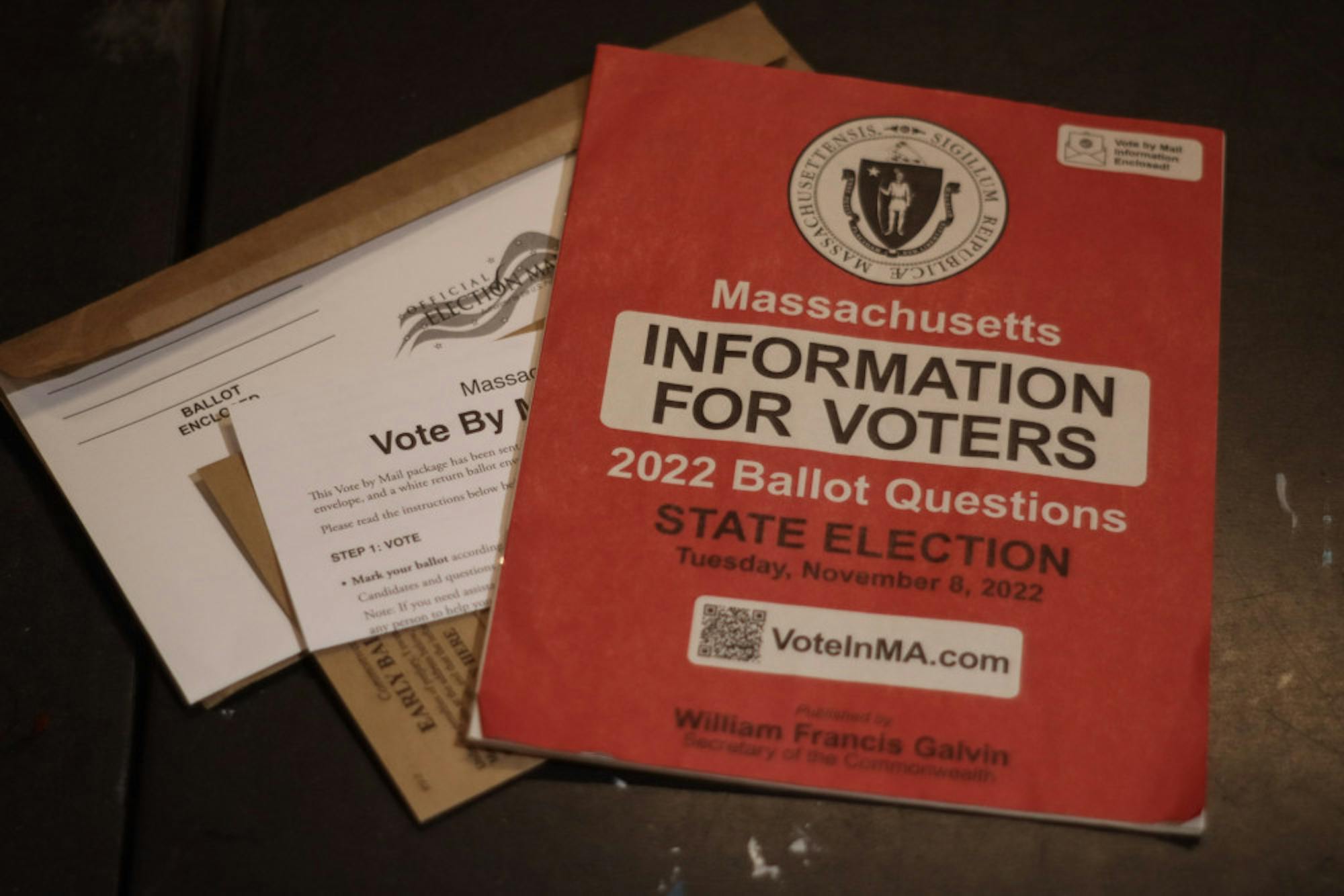Professor Jeffrey Berry and Associate Professor Kelly Greenhill of the political science department spoke at a panel entitled “What Happens Next? Understanding Election Results” in conjunction with Tufts Democrats and Tufts Republicans on Nov. 14. The panel focused on major winners and losers of election night, the likelihood of bipartisan compromise in Congress and the local, national and international implications of the election results.
Isabella Getgey, a political science and SMFA combined-degree student, moderated the panel by directing questions toward the professors as well as the student contributors, Tufts Republicans member Andrew Butcher and Tufts Democrats members Neelan Martin and Mark Lannigan, in a roundtable discussion format.
The discussion opened with each panelist’s summation of the key issues on the ballot this election cycle, and how those issues served as motivating factors for voting.
“For our membership [within Tufts Republicans] and for conservatives more broadly, one of the number one issues was the economy and inflation,” Butcher said.
The panelists representing Tufts Democrats pointed to ideological issues — particularly those challenged in the Supreme Court since the last election — as factors that drove larger than expected voter turnout.
“Democrats … have overperformed expectations,” Lannigan said. “I think that's largely due to underestimation of the role that reproductive justice has played in the midterms. Reproductive rights are big for Democratic voters, especially for Gen Z voters who came out in a really big way for Democrats, especially Gen Z women.”
After the initial conversation about the results, Getgey shifted the topic to the ‘red wave’ predicted by many pollsters — the idea that the Republicans would take back the house by a landslide. Berry reflected on why such a wave did not materialize despite the Republican party’s efforts towards this result.
“First of all, the red wave was a mirage,” Berry said. “One thing that Republicans did that was really dumb was that they helped to propagate this idea that there was a red wave coming, and they actually paid for polling firms to do polls to show that the Republicans were going to do better. Usually in politics you want to lowball expectations.”
A few panelists spoke to the lessons learned about the platforms of the two major parties from this midterm election. Martin spoke to the increasingly progressive officials being elected and how this could represent a shift in the Democratic party. He also pointed to a few newly elected members of Congress that embody these ideals.
“I think that especially in the Democratic Party, now progressives have a real base, and they can win,” Martin said. “You saw Summer Lee, who flipped a seat in Pennsylvania, who is a real progressive. There are also a couple more members being added to The Squad in the House, like Maxwell Frost in Florida, who is a Gen Z member.”
Butcher spoke to the impact of independent voters on Republican candidates’ success.
“When I look at the question about the base, at least in the Republican Party, … what’s interesting to me is what we learned about … people who are independent, and that force of the electorate as a whole,” Butcher noted. “If you look at the candidates who were endorsed by President Trump, they all underperformed. On the whole, these were all not serious people. The American people want serious people in government.”
Getgey then shifted the discussion to the foreign policy implications for President Biden under a Republican-controlled House. Greenhill discussed the unclear future of American foreign policy, as well as specific international issues that could receive more or less attention as a result.
“It’s not clear how much it's going to change on the foreign policy front,” Greenhill said. “The bottom line is, foreign policy is largely the purview of the president … it’s not that Congress couldn’t play a role, I just don’t see many reasons to believe that there’s going to be much substantive that happens on foreign policy, other than maybe stalling Biden’s agenda [and] slowing things down.”
Getgey then touched on a topic closer to home: Massachusetts state politics and what members of the panel would like to see from Governor-elect Maura Healey. Berry mentioned the importance of expanding access to public transit, and the outcomes these changes could have for residents of the state.
“You cannot build enough housing in Boston to reduce the cost of housing,” Berry said. “The increase in supply creates more demand. … If she really wants to be bold, build a new … MBTA line, … send it down the south coast [to] southeast Massachusetts, because there's a lot of land there. …There are things that the governor can actually do, but it requires imagination.”






